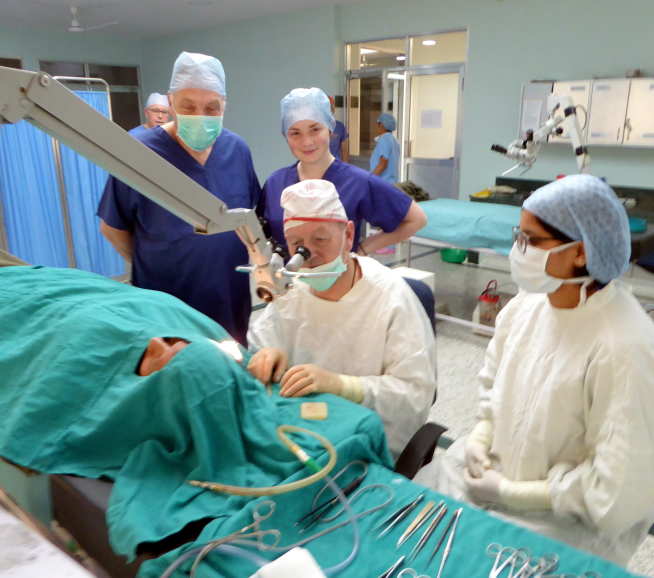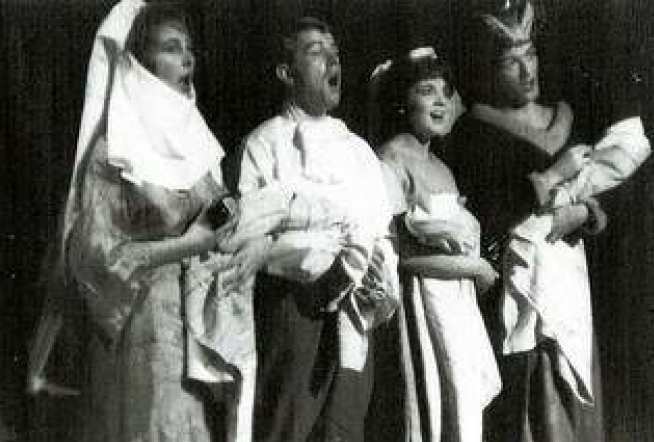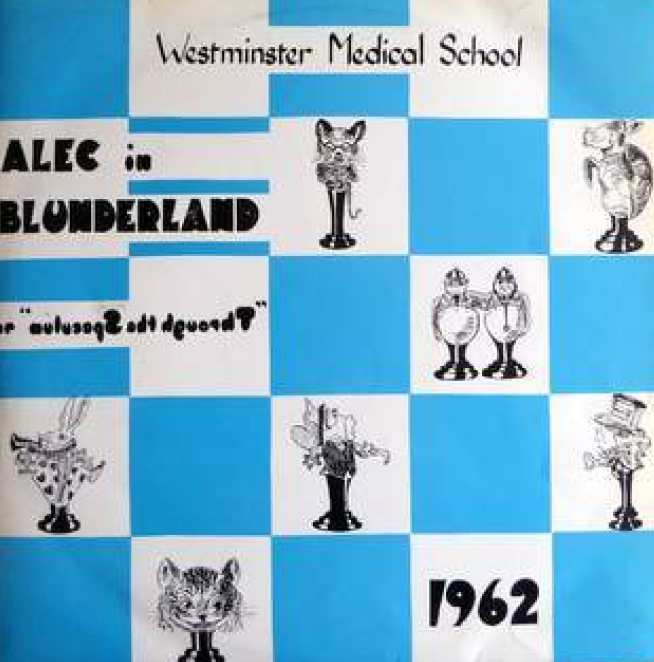
Since graduating from Westminster Hospital Medical School in 1965, Mr Neil Weir MD MA FRCS has worked as a consultant otolaryngologist at the Royal Surrey County Hospital, Guildford, and as a neuro-otologist at Atkinson Morley's Hospital in Wimbledon and as a bioethicist and medical historican. He’s also been a member of the court of examiners of the Royal College of Surgeons of England (1990-2002), edited the Journal of Laryngology and Otology (1992-2002) and founded the Britain-Nepal Otology Service (BRINOS) in 1988. But those are just some of the highlights of his career. We catch up with him as we launch a new e-newsletter for medicine alumni, to find out more about life at Westminster Hospital in the 1960s and his career since.
Life at Westminster
Mr Weir describes his time at Westminster in the early 1960s as its “golden years”. It was certainly a time of change, and different from life at Imperial today.
When we asked what was different, he told us, “As preclinical students at King's College we were well dressed, jacket and a tie – when we left in 1962 to start our clinical years at Westminster, the next intake wore jeans and open necked shirts - a cultural revolution had started! This freedom, though, did not change life on the House – in the mid-60s my time out of the hospital was limited to one day a month and my visits to hospices to harvest eyes for corneal grafting. You even had to have permission to go out and have a haircut.”
A time of change
In his time as a student, medicine, and the way it was taught, was evolving quickly. Teachers were starting to specialise more and healthcare choices were starting to move away from general practice.

Mr Weir mentioned, “Westminster before we arrived had no professors of medicine and surgery, so we enjoyed their arrival. One of the professors that I remember well was the Professor of Surgery, Harold Ellis. Wonderfully, he is alive and well at 93 and is still teaching anatomy at King’s College London.”
His career wasn’t the only part of his story that started while he was at Westminster. He also met his wife, Sue, of 53 years who is a well-known medical historian. They have two sons, one a consultant histopathologist at Charing Cross Hospital and the other a QC specialising in personal injury, and six grandchildren. He told us, “Sue was a Westminster nurse. We met at Queen Mary's hospital, Roehampton, while I was doing a locum. She was just coming up to her finals.”
Career success
Westminster Hospital Medical School graduates pursued very different careers. Mr Weir chose to become an ENT surgeon.
He explained, “the pre-registration year jobs were half surgery, half medicine. I did the ENT and Eyes job at Westminster and then a house physician job at Winchester.”
Adventures abroad
One of Mr Weir’s many career highlights involved his work in Nepal, where he founded the Britain-Nepal Otology Service (BRINOS) in 1988.
It came about at the end of a holiday when, out of curiosity, he visited one of the only two hospitals in Kathmandu. He said, “I asked the hotel staff where the nearest hospital was – they pointed me up the road to the university teaching hospital. I found the ENT department, so I bustled my way through the crowds, and I started speaking to the only professional in the country who could perform modern ear surgery. His father, who at one time was the only Eye and ENT surgeon in the country, wanted to reach out to needy people with hearing loss and ear disease beyond the Kathmandu Valley. I offered to bring a British team to join his son and later other Nepalese surgeons to conduct a surgical ear camp twice a year. We have recently completed the 64th camp.”
His work over 31 years has trained and helped Nepalese ear surgeons to combat and prevent disease. He was even awarded the Gorkha Dakshin Bahu medal by the late King Birendra.
More recently, BRINOS has raised funds for the BRINOS Ear Care Centre in Nepalgunj, South Western Nepal, which opened in 2016. This acts as the hub for primary community ear care and surgery.
Memories of Westminster

Mr Weir looks back on his time at Westminster Hospital fondly. A memory that has stayed with him over the years is the Shrove Tuesday dinner (now called the Shrove Tuesday Final Year Dinner). It started in 1940 when the chaplain of the hospital decided he wanted to lift spirits during the war.
He told us, “they had a paper table cloth and a guest of honour. Among the students was a caricaturist – he scribbled a picture of the guest of honour on the table cloth. Everyone signed their name around it and they cut it out – and that was the first Shrove Tuesday dinner portrait. The one I went to three weeks ago was the 79th!"
Mr Weir is currently working with the Faculty of Medicine on a fascinating project for our website that will display portraits and profiles of the guests of honour throughout the years.
Putting on pantos
Another thing Westminster was known for was its pantomimes which were full scale musicals.
Mr Weir told us how he spent his spare time performing. He said, “I played the Mad Hatter and the Duchess in one, and Juno in another and designed one. I did the programmes and record sleeves for two of them. It got me into theatre. And I loved every moment of it!”
Every pantomime was recorded. Mr Weir is currently helping the University with a project that is collating these recordings – and they’ve even managed to find the majority of the old programmes at the Chelsea and Westminster Hospital archives.
Part of the Imperial community
As a member of our alumni network, Mr Weir is still involved with regular events and reunions. He said he enjoys looking back at how different things were and keeping up to date with what others are doing.
He explains, “we have a group called the 66 club and there are a number of these different alumni groups with different years attached to them. The last event was about a month ago, at the beginning of March.”
Mr Weir is just one of the members of our global community with a story to tell. Our medical alumni take on a range of roles and challenges, from carrying out life-saving research for the World Health Organisation, to helping the NHS set up clinics to tackle gambling. If you would like to tell your story, or nominate an alumnus to appear on these pages, please get in touch via alumni@imperial.ac.uk.